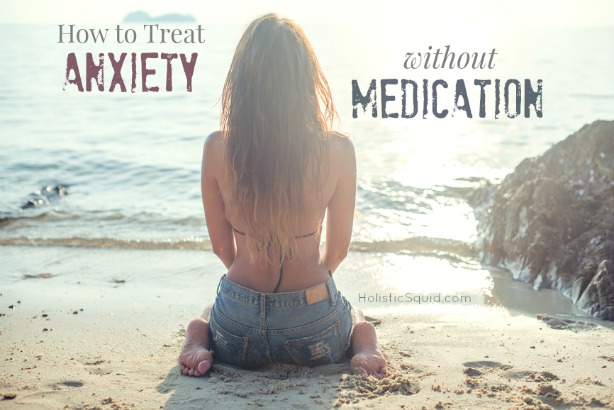

Confession: Learning how to treat anxiety naturally has been a personal quest for me.
In the U.S., one in four adults suffers from a diagnosable mental disorder, and over 19 million adults and millions of children have anxiety, which can range from the mild to moderate to the extremes of panic disorders, obsessive-compulsive disorder and PTSD.
While these numbers surprise me, I can relate. It can be a perfectly normal day, and I may find myself completely unable to deal with my children's endless needs or the fellow shoppers in the Whole Foods parking lot. Sometimes mild, sometimes more intense, but I've come to realize that I too suffer from occasional anxiety.
While there are certainly individuals and cases that warrant western medical intervention, I wanted a solution that was longer lasting, effective, and without side effects. It's alarming how often Xanax and other drugs are quickly prescribed when there are many ways you can empower yourself to manage anxiety without medication.
(I will be discussing remedies for mild to moderate anxiety below. Although some protocols can assist those with more extreme forms of anxiety, I am in no way recommending suddenly stopping medication to use these techniques as a replacement, without seeking professional advice.)
Why anxiety has become an epidemic
In this fast paced, go-go-go, tech driven world we live in, symptoms of anxiety can sneak up on us. We tend to get so wrapped up in moving from task to task that we can mistake many of the signs of anxiety as being just a mundane aspect of a busy life.
It is common to dismiss things like dizziness, headaches, digestive symptoms, chest pain, lack of concentration and irritability until they have a dire impact on our daily lives. We justify the symptoms as being PMS or blame them on simply skipping a meal or running too fast to our next commitment.
It is often not until people find themselves in urgent care for panic attacks with overwhelming symptoms that mimic a heart attack or other major conditions that they become concerned about their anxiety.
Why treating the root cause is key
In order to be able to figure out how to treat your anxiety, it is important to determine what underlying factors are contributing to it.
During times of stress, our body has several ways that it tries to normalize and escape the stressors. This can trigger the “fight or flight” reflex which induces a release of stress hormones and glucose into your system. The chronic release of these substances can lead to anxiety and fatigue as well as other health problems.
We've all heard the term ‘stress eating'. Reaching for sweet treats or comfort foods as a remedy for stress can lead to poor nutrition. This can trigger an acute gut/brain imbalance.
A 2011 study at McMaster University in Toronto, Canada, explored the link between gut health and anxiety. The research, published in the journal Gastroenterology, found that a disruption in normal gut flora caused increased anxiety and depression.
All of this may have you pulling your hair out, grabbing a cupcake and calling your physician for a quick fix. Don't.
Xanax and Ambien, some of the most prescribed drugs for anxiety, have many side effects such as drowsiness, dizziness, irritability, headache, memory problems, trouble concentrating, insomnia, increased depression, suicidal thoughts, and hallucinations.
While it's possible that the drugs may improve your symptoms in the short term, they may also lead you down a deeper path with more severe symptoms.
So what can you do if you find yourself in the spectrum of anxiety disorders? Keep reading.
How to treat anxiety without medication
Get quality sleep
It may sound like trite advice, but this is essential… Getting the right amount of high quality sleep is a key step in managing anxiety.
One practice that helps is creating a tech free hour right before you go to bed. Turn off the TV, computer and your phone. Read, meditate, journal, have a cup of herbal tea. Relax. Set up a healthy routine and repeat it night after night until it is habit.
Reduce caffeine intake
Generally speaking, I don't think that coffee, tea, or other caffeinated drinks are bad, and while there are some known benefits to caffeine, if you suffer from anxiety (especially with difficulty getting good sleep) caffeine is probably not helping matters.
There are plenty of studies to back the claim that reducing caffeine can help in your quest of how to treat anxiety. If cutting your joe is not a doable option, try to stick with one in the morning, and then switch to herbal tea in the afternoon.
Take stress management seriously
Another common sense measure that should not be overlooked – stress should not be ruling your life. A combination of regular exercise and meditation as cornerstones of your routine can do wonders for boosting mood and reducing anxiety.
Think you're too busy to exercise? Aim for 10,000 steps using a Fitbit or similar tracker and fit in this quick workout twice per week.
Intimidated by meditation? Download a free app to your smartphone or try a guided visualization technique.
Use a calendar to help keep healthy boundaries between your work and personal time. Schedule in time with friends and family, creative projects and activities outside your workspace, especially if you work from home like I do part of the time.
Finally, if you suffer from chronic anxiety it's important to consider what in your life is just not working. Stumped? Consider working with a therapist to get to the root.
Try Chinese medicine
Chinese medicine works by not only treating symptoms, but by treating the root cause of a condition. As such, it's a great way to treat anxiety and prevent it from recurring.
Your Chinese medicine practitioner will do a complete diagnostic intake to determine why your symptoms are occurring and then treat your specific imbalance with a combination of acupuncture and herbal formulas.
One common diagnosis for anxiety is “Heart and Kidney Yin deficiency” with defining symptoms such as irritability, palpitations, fatigue, insomnia, night sweats, trouble with concentration, poor memory, forgetfulness, dryness, and possible mouth and tongue sores. The classic formula for this presentation is tian wan bu xin dan.
Alternatively, if you suffer from anxiety with irritability, rage, flank pain, poor digestion, and PMS – your diagnosis may be “Liver Qi stagnation with Spleen Qi deficiency” and an appropriate herbal formula may be jiao wei xiao yao san.
The beauty of Chinese medicine – apart from the fact that it's safe and natural – is that the treatment is customized for your specific needs and the root cause of your anxiety.
Choose smart supplements to treat anxiety
Probiotics
Probiotics found in fermented foods such as yogurt, kefir, sauerkraut and kombucha (as well as probiotic supplements) help balance healthy gut flora, which can help eliminate brain fog, low energy and anxiety.
Read this post to learn more about the health benefits of probiotics. If you're looking for more fermented food recipes, there's an app for that – I teamed up with my husband to create a meal planning service that will help you fit real food ingredients and probiotic-rich foods into your family's diet.
Omega-3's
Fish oil is a great source of Omega-3 fatty acids, which have an anti-inflammatory effect and can boost brain health and manage anxiety.
In a 2011 trial, 68 medical students were shown to have a 20% reduction in anxiety symptoms while using fish oil, whether they were tested on low stress days or high stress exam days. This is the fish oil that I recommend.
Amino acid therapy
With chronic stress or inadequate nutrition, you may be lacking the proper neurotransmitters for proper brain function. A simple solution is to supplement with the amino acids that are the building blocks of these neurotransmitters.
In particular, anxiety can be caused by a low level of serotonin in your system, and can be treated safely and effectively with a 5HTP supplement. Depression is often caused by a lack of catecholamines and can be addressed with L-tyrosine.
For more information on amino acid therapy be sure to check out this book and be sure to tune into the free event below…
What other ways do you treat anxiety naturally?
Let me know in the comments!



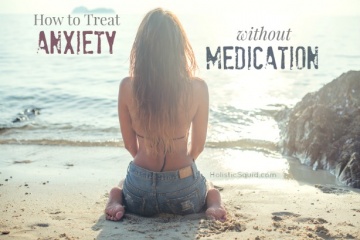

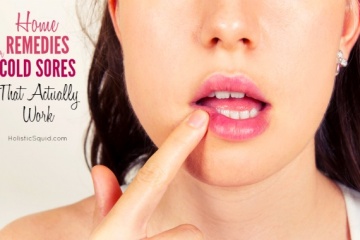

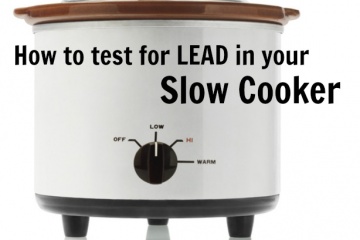


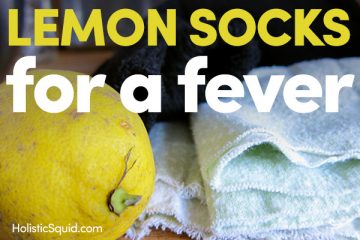
Hi! I am interested in trying the Chinese medicine route, specifically the jiao wei xiao yao san. Where does one get this? Thank you!
Hi Bonnie, you can buy it online here. I hope that helps! If, however, you find that a patent formula is not applicable for you, you may need to find a chinese medicine practitioner to formulate one for you.
This is super helpful information! Chronic stress and anxiety attacks used to play a huge role in my daily life. However, after trying many different healing strategies I was able to find a life changing and long term solution. I was able to build new neurological pathways in the higher brain. These pathways were conditioned to sustain a mindset of calm and resilience thereby displacing earlier habits of chronic stress.
Im curious as to what kind of Doctor prescribes Ambien for anxiety?
I love this! I was depressed and had bad anxiety most of my life. I tried all of the medicines and they usually made things worse. One day I got sick of it and decided to start saying affirmations, meditate, and take control over my life. I did and in the process I changed my life forever. I opened up my intuitive gifts that I had been stuffing away my entire life. Now I am happy to say that o changed my life for the better and I am a psychic medium who helps other open their gifts and change their life for the better just like I did! Thank you for your article.